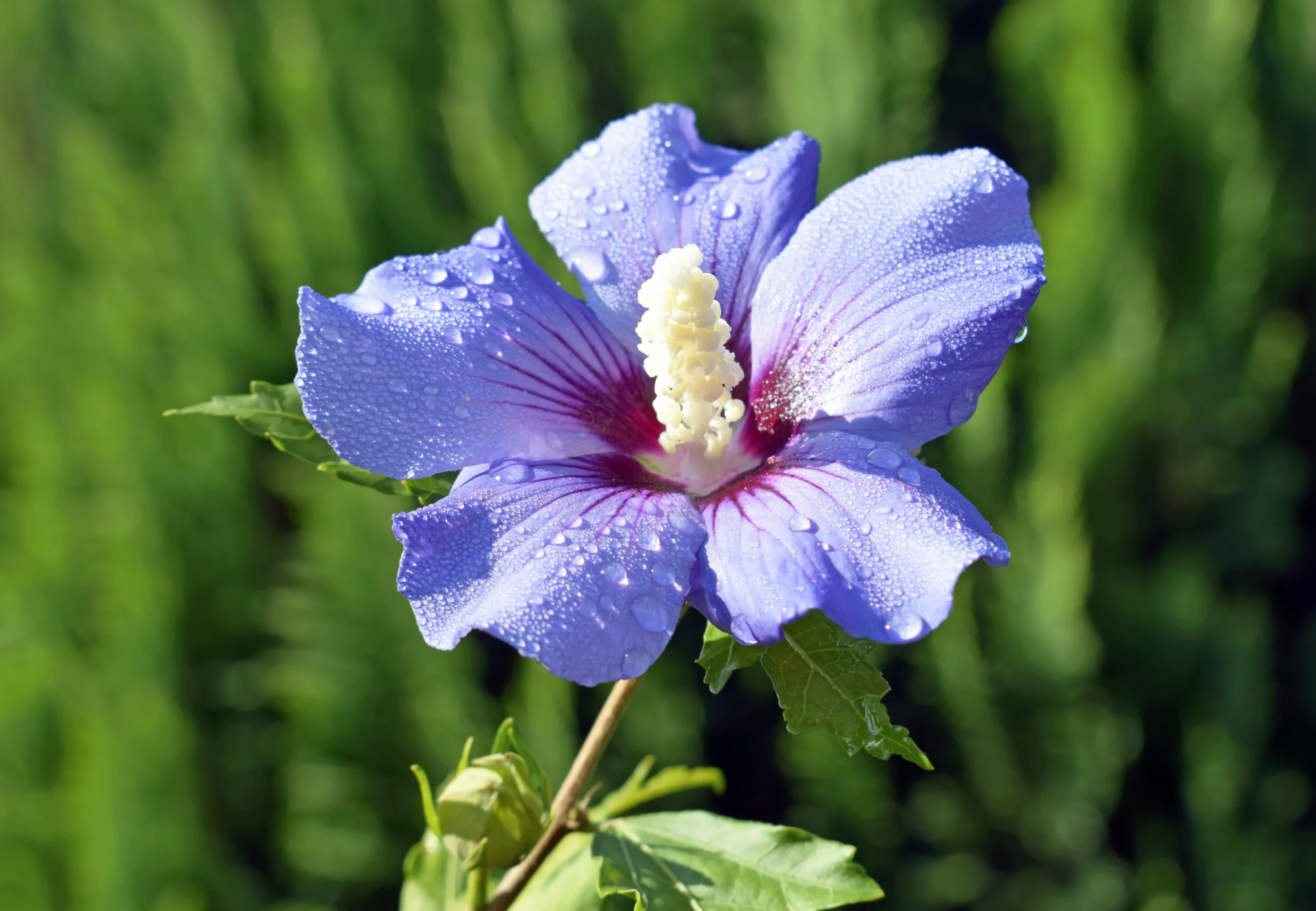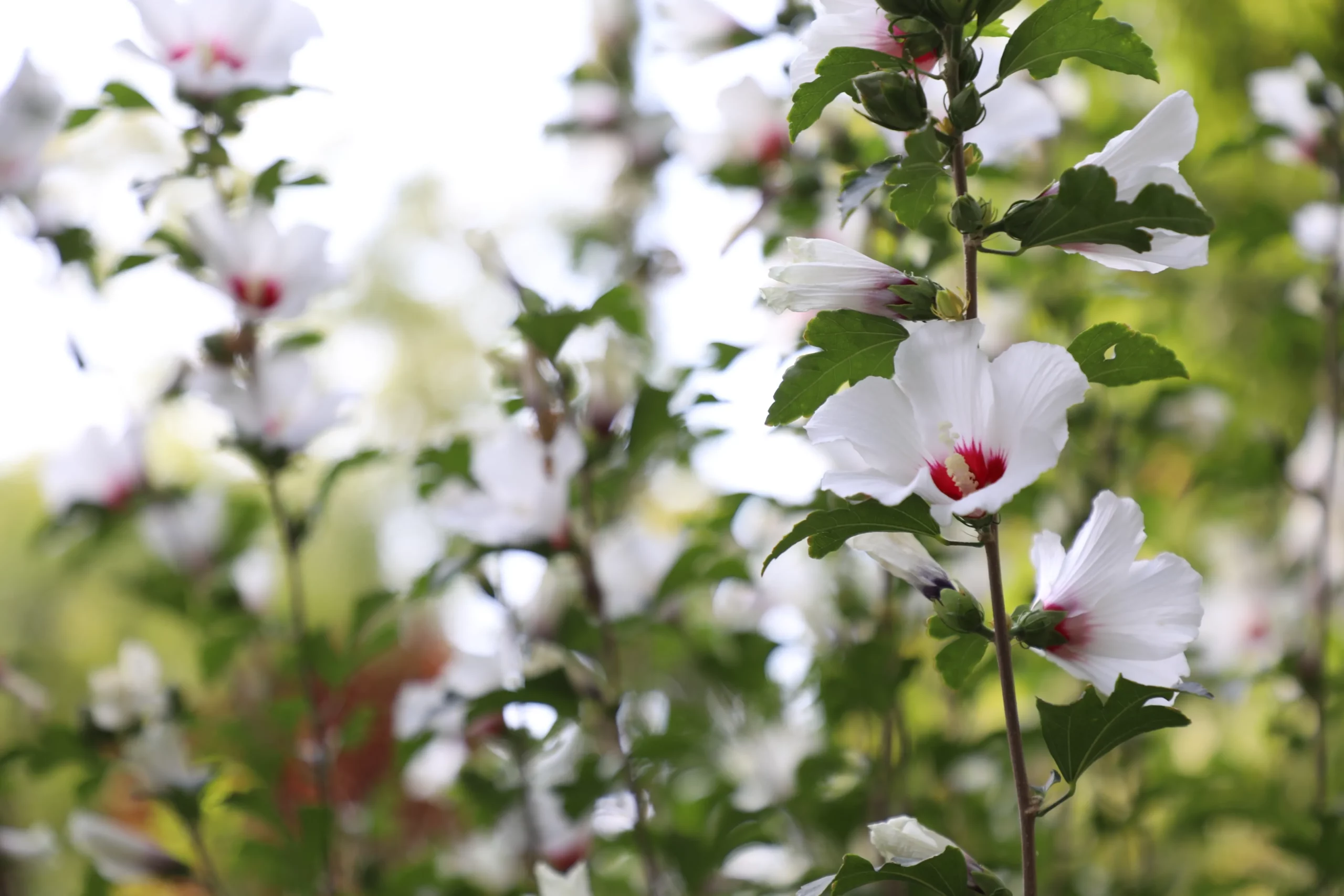Dive into the fascinating world of plants with our curated plant database, a hub of knowledge featuring a wide array of plant species. From vibrant blooms to rare specimens, explore the intricate details and diverse characteristics of the plant kingdom.
Hibiscus syriacus 'Notwoodthree'
Hibiscus syriacus 'Lil' Kim'
Hibiscus, with its showy blooms and tropical flair, is a favorite among gardeners looking to add a vibrant touch to their landscapes. Whether it’s the smaller hibiscus plant or the more majestic full-grown hibiscus tree, these plants are sure to bring an exotic and colorful look to any garden setting. Understanding the growth, blooming patterns, and care of hibiscus can help you integrate these stunning plants into your garden successfully.
The hibiscus plant is known for its large, eye-catching flowers that come in a variety of brilliant colors, including red, pink, orange, yellow, and white. These plants can add a dramatic splash of color to any garden, and they’re often used in borders, container gardens, or as standalone features. Hibiscus plants are not only popular for their beauty but also for their relatively easy care, making them a great choice for both experienced and novice gardeners.
The hibiscus flower is arguably the most striking feature of this plant. Known for its size and vivid colors, the hibiscus flower can be a real show-stopper in any garden. These flowers are not only beautiful but also attract pollinators like butterflies and hummingbirds, adding an extra layer of vibrancy to your garden.
For those looking for a more substantial presence in their landscape, the full-grown hibiscus tree is an excellent choice. As it matures, the hibiscus tree provides both stunning floral displays and an elegant structural element to your garden. With proper pruning and care, these trees can be a focal point in garden designs, offering height and dimension along with their beautiful blooms.
The hibiscus tree, a smaller version of the full-grown tree, is ideal for those with limited space who still want to enjoy the spectacular blooms of the hibiscus. These trees can be grown in larger containers or planted directly in the ground, making them versatile for various garden settings. The hibiscus tree, with its woody stems and lush foliage, provides a tropical look and can be an excellent addition to patio areas or as a standout feature in garden beds.
When it comes to blooming, many gardeners often ask, “When do hibiscus bloom?” Typically, hibiscus plants start flowering in late spring or early summer and continue to produce blooms throughout the summer and into fall. The exact timing of blooms can vary depending on the variety and local climate conditions. To encourage prolific blooming, hibiscus plants should be placed in a location where they receive ample sunlight and should be watered and fertilized regularly.
In conclusion, hibiscus, with its striking flowers and tropical appearance, is a fantastic choice for adding a splash of color and exotic charm to your garden. Whether you opt for a hibiscus plant, admire the stunning hibiscus flower, grow a full-grown hibiscus tree, care for a smaller hibiscus tree, or are curious about when hibiscus bloom, these plants are sure to enhance the aesthetic appeal of your outdoor space. With the right care and conditions, hibiscus can provide a spectacular and long-lasting display in your garden.
Sign up below to get exclusive deals, discounts, and new plant collections—delivered straight to your inbox! Plus, stay inspired with the latest gardening tips, landscaping trends, and DIY garden ideas. Start growing with us today!
A big thank you for subscribing to the PBN Design newsletter.
We're thrilled to have you join our community. Get ready for exciting updates, insightful content, and more delivered straight to your inbox.
Stay tuned!
Go back

;)
